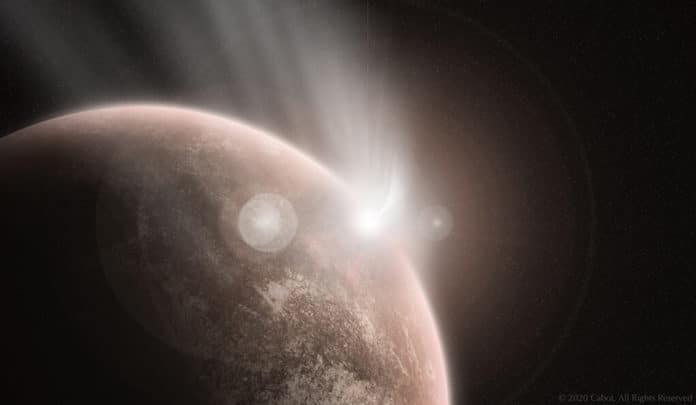Did Venus at one point harbor Earth-like conditions?
A recent study has suggested that Venus may have had an Earth-like environment billions of years ago, with water and a thin atmosphere.
However, such theories are difficult to examine without geological samples.
Yale scientists, in their new study, have suggested a solution on this. They have suggested that billions of pieces of Venus are likely to have crashed on the moon.
According to scientists, asteroids and comets slamming into Venus may have dislodged as many as 10 billion rocks and sent them into an orbit that intersected with Earth and Earth’s moon. Some of these rocks will eventually land on the moon as Venusian meteorites.
Yale astronomer Samuel Cabot said, “Such catastrophic impacts such as these only happen every hundred million years or so — and occurred more frequently billions of years ago.”
“The moon offers safe keeping for these ancient rocks. Anything from Venus that landed on Earth is probably buried very deep, due to geological activity. These rocks would be much better preserved on the moon.”
Scientists cited two factors supporting their theory. The first is that asteroids hitting Venus usually are going faster than those that hit Earth, dispatching significantly more material. The second is that a huge fraction of Venus’s ejected material would have approached Earth and the moon.
Gregory Laughlin, an astronomer from Yale, said, “There is a commensurability between the orbits of Venus and Earth that provides a ready route for rocks blasted off Venus to travel to Earth’s vicinity. The moon’s gravity then aids in sweeping up some of these Venusian arrivals.”
Upcoming missions to the moon could give Cabot and Laughlin their answer soon.
Laughlin said several standard chemical analyses could pinpoint moon rocks’ origin, including many that came from Venus. Different ratios of specific elements and isotopes offer a fingerprint for each planet in the solar system.
“An ancient fragment of Venus would contain a wealth of information. Venus’ history is closely tied to important topics in planetary science, including the past influx of asteroids and comets, atmospheric histories of the inner planets, and the abundance of liquid water.”
Journal Reference:
- Samuel H. C. Cabot et al. Lunar Exploration as a Probe of Ancient Venus. arXiv:2010.02215
